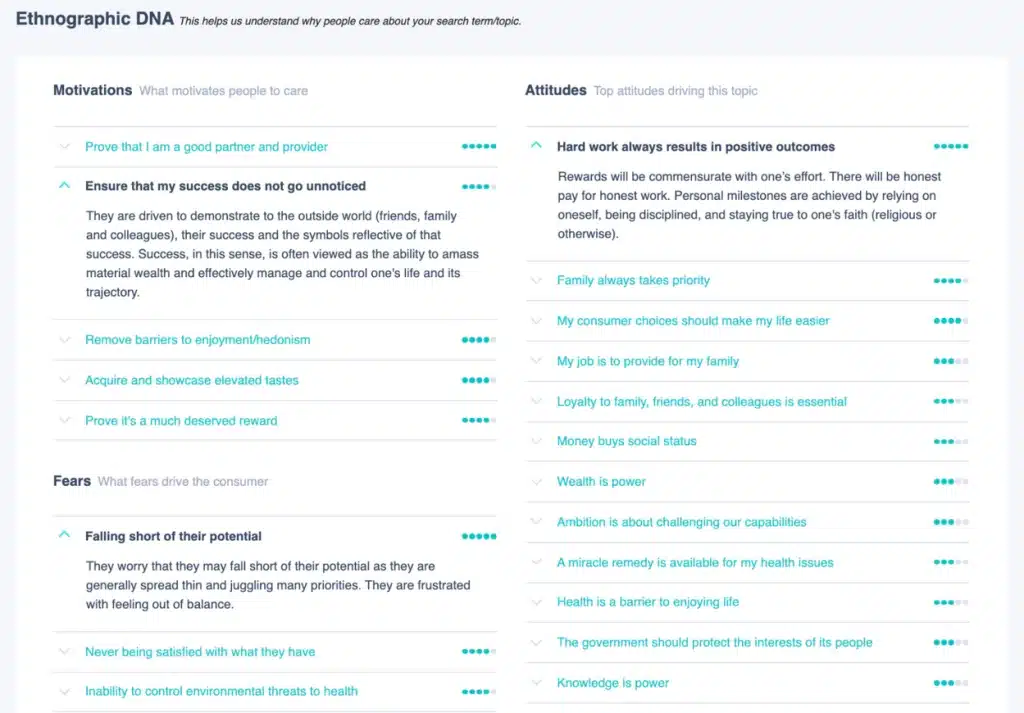We realized early on that in order to truly enable observational ethnography with AI, we had to solve two major problems.
The first was to teach a machine to understand context so it could build a living and breathing model of the meanings that surround any topic or idea at any given point in time. We achieved this with our contextual intelligence algorithm.
Once the problem of context was sorted, we then set out to interpret the constellation of meaning surrounding a topic or trend in culture. To do so, we relied on more than a decade of research we had conducted with manual digital ethnographies of over 1.5M American consumers (and over 4M consumers globally).
When we initially embarked on that ambitious project, we had set out to create a comprehensive database of consumer motivations. We imagined that unlike what Sociologists like Bourdieu had uncovered more than 50 years ago, we now live in a much more nuanced and complex world. So instead of finding five or six types of motivations that could explain most human actions, we hypothesized that we’d end up with about 75-100 motivations. But as we studied more and more people, we began to discover that the ethnographic DNA of consumers is a lot more complex than we had previously imagined. As time went on, we uncovered more and more motivations, fears, values, and attitudes. When we finally began to hit saturation (uncovering no new motivations) we realized that we now had a massive library of ethnographic factors made up of thousands of motivations, fears, values, and attitudes. Resulting in Billions of permutations that could explain pretty much any type of topic, issue, or trend in culture.

We now had a framework with which we could use to teach a machine to think like an Anthropologist and act like one in interpreting the constellations of meaning that surrounds any topic in culture at any point in time.
This library of ethnographic factors, therefore, makes up the second critical component of our intellectual property, because, without it, Lux MotivBase would not exist today.
